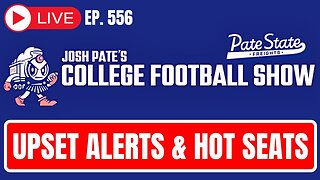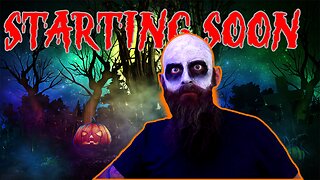#9 Is the Bible true?
In this Episode: Main Scripture : 1 John 2:19
If there's one name that keeps coming up in support for the argument against Biblical inerrancy, it’s Bart Ehrman, who has been public about leaving the Christian faith for decades now; a decision he claims is not colored by his scholarly work.
Bart Ehrman, it seems to me, has gone from skeptical scholar, hoping to enlighten fundamental Christians, to claiming more recently that leaving Christianity actually leads to more meaning and purpose.
Today I want to focus on 11 quotes from Ehrman’s book, “Misquoting Jesus – The story behind who changed the Bible and Why”
I'm doing this because as far as I can tell, the mainstream argument I hear when it comes to the “debunking” of our Christian claim to inerrancy, is summed up in the introduction to Ehrman’s book. Almost like his teaching is the go-to authority on the other side of the argument.
Here are the quotes:
#1: “We didn’t actually talk about the Bible much, or read it much, even in Sunday school classes, which focused more on practical and social issues, and on how to live in the world.”
#2: “I soon became envious of this ability to quote scripture and got involved with Bible studies myself, learning some texts, understanding their relevance, and even memorizing the key verses.”
#3: “…was to ascertain what the originals of the Bible said, given the circumstances that (1) they were inspired and (2) we don’t have them.”
#4: “My idea at the time was that there were plenty of highly educated scholars among the evangelical Christians, but not many evangelicals among the (secular) highly educated scholars, so I wanted to become an evangelical voice in secular circles, by getting degrees that would allow me to teach in secular settings
while retaining my evangelical commitments.”
#5: “In other words, this is one of those passages that have been pointed to in order to show that the Bible is not inerrant at all but contains mistakes.”
#6: “…there are more differences among our manuscripts than there are words in the New Testament.”
#7: “In short, my study of the Greek New Testament, and my investigations into the manuscripts that contain it, led to a radical rethinking of my understanding of what the Bible is.”
#8: “The Bible began to appear to me as a very human book. Just as human scribes had copied, and changed, the texts of scripture, so too had human authors originally written the texts of scripture. This was a human book from beginning to end.”
#9: “The Bible, at the end of the day, is a very human book.”
#10: “My personal theology changed radically with this realization, taking me down roads quite different from the ones I had traversed in my late teens and early twenties. I continue to appreciate the Bible and the many and varied messages
that it contains—much as I have come to appreciate the other writings of early Christians from about the same time and soon thereafter, the writings of lesser-known figures such as Ignatius of Antioch, Clement of Rome, and Barnabas of Alexandria, and much as I have come to appreciate the writings of persons of other faiths at roughly the time, the writings of Josephus, and Lucian of
Samosata, and Plutarch. All of these authors are trying to understand the world and their place in it, and all of them have valuable things to teach us. It is important to know what the words of these authors were, so that we can see what
they had to say and judge, then, for ourselves what to think and how-to live-in light of those words.”
#11: “It is written based on my thirty years of thinking about the subject, and from the perspective that I now have, having gone through such radical transformations of my own views of the Bible.”
Key Scriptures: Ex 17:14; Is 30:8; Jer 30:2; Hab 2:2; Rev 1:11; Lk.
1:3; Jude 3; John 20:31;
Subscribe: https://www.mindofmiz.com/subscribe
Support: https://www.mindofmiz.com/support
Blog: https://www.mindofmiz.com/blog
Twitter: https://twitter.com/Mind_Of_Miz
-
 LIVE
LIVE
Josh Pate's College Football Show
1 hour agoWeek 4 Upset Alerts | Florida & Billy Napier Future | Biggest Vegas Movement | Cole Cubelic Joins
185 watching -
 LIVE
LIVE
The StoneZONE with Roger Stone
2 hours agoPennsylvania is the Key to Trump Victory - w/ Cliff Maloney of the PA Chase | The StoneZONE
660 watching -
 LIVE
LIVE
Tundra Gaming Live
8 hours agoThe Worlds Worst Horror Streamer Has Heart Attack Playing Phasmophobia
122 watching -
 LIVE
LIVE
MissesMaam
5 hours agoManager Ma'am 💚✨
914 watching -
 LIVE
LIVE
The Big Mig™
3 hours agoDHS -”5 Assassination Teams Actively Trying To Kill Trump”
793 watching -
 58:33
58:33
The Body Language Guy
4 hours agoTrump BREAKS the internet, Kamala DROPS, Newsom BANS MEMES and MOAR!
30.4K26 -
 49:15
49:15
VIVA TV
6 hours agoHank and Chaps Tee It Up in a Dartboard Rematch Presented by Fireball
26.1K1 -
 46:18
46:18
Kimberly Guilfoyle
8 hours agoFed up: it’s time for answers, live with Pat Brosnan, Steve Moore & Karoline Leavitt | Ep. 159
42.9K41 -
 1:03:41
1:03:41
Redacted News
5 hours agoDeep State PREPARING You For Election Night Turmoil, Fed just admitted the truth | Redacted News
104K259 -
 46:17
46:17
Candace Show Podcast
4 hours agoGuess Who’s Back? I’m Out of YouTube Jail. | Candace Ep 68
96K441